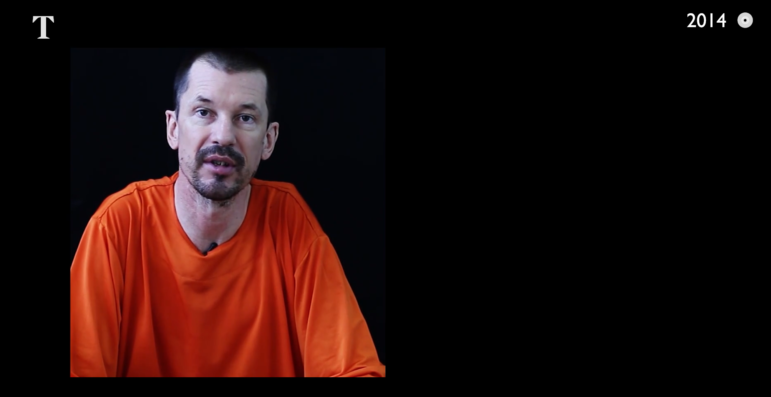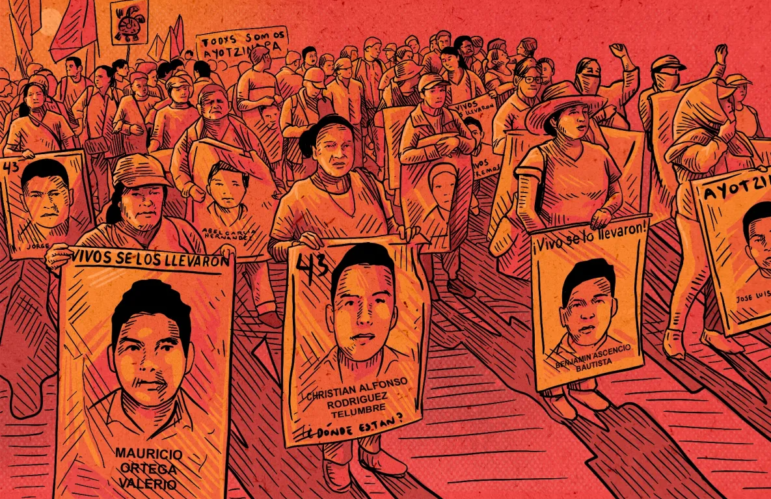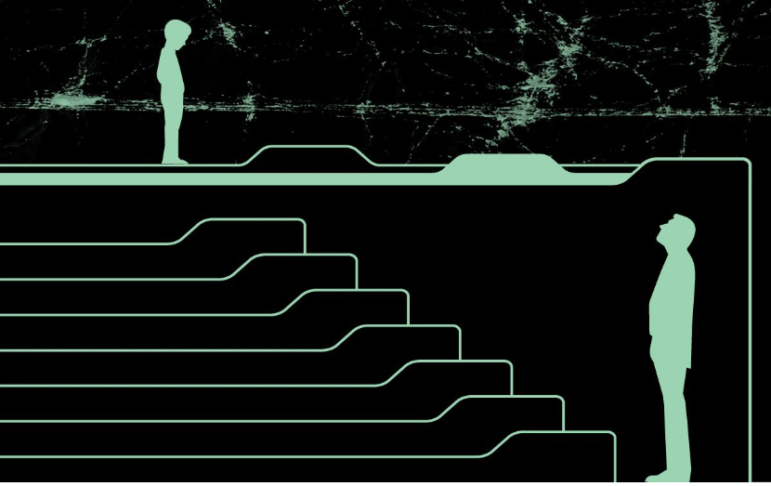
Image: Shutterstock
Adnan Syed, the subject of the investigative podcast Serial, spent 23 years in jail accused of the murder of high schooler Hae Min Lee.
It was a crime he always said he did not commit. And in September last year he was released after an investigation by prosecutors in the US city of Baltimore revealed problems with key evidence used to convict him and the possibility of “alternative suspects.”
His release put an end to an apparent injustice and cemented the reputation of the reporting team behind the audio blockbuster that delves into the case.
“There is a huge audience for true crime podcasts and content, and investigative stories are a perfect fit for that.” — Susanne Reber, executive producer of podcasts at Scripps“Adnan Syed got out of prison yesterday. It was extraordinary, the whole thing,” said journalist Sarah Koenig, who hosted the original 2014 podcast in a follow-up episode after he walked out of jail. “In the years since our story first aired… the picture that’s emerged is this: Adnan’s case contains just about every chronic problem our system can cough up. Police using questionable interview methods. Prosecutors keeping crucial evidence from the defense. Slightly junky science. Extreme prison sentences. Juveniles treated as adults. How grindingly difficult it is to get your case back in court once you’ve been convicted.”
Serial brought global attention to Syed’s case and showed the power of investigative journalism to ask questions and how podcasts can use the investigative format for good.
But nearly 10 years on from the release of Serial, what makes a good podcast today? Ellen Weiss, the former Washington DC bureau chief for Scripps and the former senior vice president of news at NPR, says that while not all great investigations translate into great podcasts, the best “are compelling, something is revealed, something happens, they are character-driven.”
Susanne Reber, the executive producer of podcasts at Scripps, and co-founder of Reveal, an investigative radio program and podcast from the Center for Investigative Reporting, says podcasts “are the perfect vehicle for investigative stories.” The best, she says, are the stories with “plots, twists, and turns.”
“There is a huge audience for true crime podcasts and content, and investigative stories are a perfect fit for that,” she said in a forum last year. “Investigative stories are deep, we are hunting things down, revealing things the public doesn’t know.”
GIJN’s global team has reviewed some of our favorite investigative podcasts from the past year. Some dig into scandals and allegations of sexual assault. Others take a deep dive into the backgrounds of leading political figures or explore national scandals. There are tragedies, public interest stories, politics, crime, and corruption, with stories drawn from around the world: Mexico, China, Belgium, Brazil, Russia, Indonesia, the UK, and the US.
After Ayotzinapa, Reveal
- From: Mexico/US
- Language: English/Spanish
While the violence related to the drug war in Mexico has created a long list of tragedies, there is one case that changed the conversation, a massacre that created a “before” and “after” in people’s consciousness: Ayotzinapa. On September 26, 2014, 43 students from a rural teachers’ college in the town of Ayotzinapa came under attack in the Pacific state of Guerrero, and were never heard from again. This investigative podcast — which is available in English and in Spanish — reveals how the years-long probe into what happened and who was behind the killings has been botched by the authorities. Different administrations have tried to solve the case as quickly as they possibly can, hoping the story — which implicates local police in the attack — will “go away.” But the government’s explanations of what happened have contradicted the findings of independent experts. By delving into the attack on these students, Reveal exposed how this case from a small town in Mexico is closely linked to the use of drugs and organized crime in the United States, and how some institutions in Mexico are protecting those in power. A moving podcast, with impeccable production values and a talented, bilingual female investigative reporter, the series was named by The Los Angeles Times “Latinx Files” as one of the best podcasts of 2022. — Andrea Arzaba
Hoaxed, Tortoise Media
- From: United Kingdom
- Language: English
This podcast begins in 2014, when two children from an affluent north London neighborhood tell police that they are being abused by a Satanic cult, supposedly led by their father and a broad list of parents and teachers. The story that they weave is as detailed as it is gruesome; they claim that individuals involved in the cult kill babies and drink their blood, hiding their bodies in secret drawers at the local church. But, in the first of a long line of extraordinary events, the children later reveal that they were forced to lie. In this six-part series, Alexi Mostrous, an investigative reporter at Tortoise, a UK-based “slow news” organization, dissects this complex, and shocking, conspiracy theory. Hoaxed not only probes how the story spread across the globe, but takes a thoughtful look at how a web of conspiracists operates and is legitimized by those in positions of authority. Mostrous does an impeccable job at narrowing in on the peculiarities of the individuals responsible for starting and spreading the so-called Hampstead hoax, and showing that this is about much, much more than those who first sparked the fire. — Emily O’Sullivan
Pupils, Libo/Libo
- From: Russia
- Language: Russian
This story began when Russian journalist Nastya Krasilnikova was approached by a group of women who claimed that as teenagers they had been sexually abused by teachers at a summer camp. Krasilnikova, who specializes in podcasts and interview-based reporting, went on a deep dive into their allegations and found disturbing testimony from a number of minors who attended the “summer environmental school,” a biology camp. The journalist interviews a series of former pupils — including one who was only 13 at the time — about their experiences, hearing claims that students had been made to sleep in the same tents as their teachers, were forced to go without underwear, and that boys and girls had been assaulted by those supposed to be teaching them. Despite complaints made by students at the time, the reporter learned that only one teacher was suspended. Private correspondence obtained by the journalist seems to confirm that the teachers and the director of the school were aware of what was happening. Some of the staff admitted to having inappropriate emotional and sexual relationships with students — and have apologized. The director admitted that some pupils suffered “undesired attention” and agreed that there may have been harassment at the summer school, but emphasized that this was his personal judgment, and nothing would be certain until police conduct an official investigation — something that has not yet happened. — Olga Simanovych
The Outlaw Ocean Podcast, Outlaw Ocean Project
- From: United States
- Language: English
From a mass shooting at sea to illegal fishing, and from human trafficking to digging into bad actors, the podcasts from the Outlaw Ocean Project are dedicated to investigating the “watery” two-thirds of our planet sparsely covered by journalists. The seven-episode podcast series is based on nearly a decade of reporting around the world, and offers immersive audio versions of some of the group’s major investigations. The opening episode traces an eight-year investigation of a mass shooting at sea, working backwards from mysterious phone camera footage. Other episodes explore themes like illegal fishing in the waters off Antarctica and the coast of North Korea. Drawing on their extensive archives meant that the Outlaw Ocean Project team could be strategic about narrative arcs and select the stories that would make the most compelling audio. As the podcast demonstrates, there are plenty of offshore stories to tell, and the oceans have plenty of room for more investigative reporting. — Alexa van Sickle
A Mulher da Casa Abandonada (The Woman from the Abandoned House), Folha de São Paulo
- From: Brazil
- Language: Portuguese
In this podcast — which went viral in Brazil — reporter Chico Felitti digs into the mystery surrounding the resident of an abandoned mansion in one of the richest neighborhoods in São Paulo. In many ways it’s a personal story: the reporter moved to the area and became intrigued about the eccentric lady who lived in a nearby dilapidated house, with holes in the roof and no sewers. Who was she? Why does she only leave the house wearing white ointment on her face and using a false name?
“It’s a story with several twists. I started thinking it would be a delicate profile of a person marginalized by society, a woman victim of misogyny, but I ended up facing a story of crime and cruelty like I had never investigated,” Felitti told the daily Folha de São Paulo. In his investigation, the reporter enlisted the help of the neighbors of the abandoned house and traveled to the US to speak to sources. Felitti uses these casual conversations to his advantage, and the format is unlike anything I’ve heard before: for part of the podcast, it’s like listening to neighborhood gossip, a format that manages to be engaging and which keeps the audience rapt. After weeks of insistence, he also managed to interview the elderly woman herself. — Ana Beatriz Assam
Call Bethel, The Telegraph (UK)
- From: United Kingdom
- Language: English
This investigation from the UK’s Daily Telegraph pulls back the curtain on yet another alleged case of systemic child sexual abuse. This time the institution under scrutiny is the Jehovah’s Witnesses, an insular religious group that preaches distrust of outsiders. Based on a tip, the Telegraph investigations team undertakes a project to examine claims that the group has documented — and covered up — meticulous records of sexual predators within its ranks. This five-part series offers watchdog reporters some key lessons on how to work from outside in and pierce an organization’s heavy veil of secrecy. Using court documents from the UK and abroad as well as interviews with former victims and church members, the Telegraph reporters compile a trail of evidence that leads back to the Jehovah’s Witness headquarters in Britain, known as Bethel. But only after convincing some still-active members to act as whistleblowers does the team arrive at its damning conclusion: that the highest echelons of the church kept track of serial sexual abusers and repeatedly refused to share this information with law enforcement, allegedly enabling the predators to continue their abuse on other victims. — Reed Richardson
Last Man Standing, The Times (UK)

The British journalist John Cantlie in 2014, in a still from a video featured as part of The Times’ investigation into what happened to him. Image: Screenshot
- From: United Kingdom
- Language: English
As the civil war in Syria unfolded, a grim series of kidnappings of foreign journalists and aid workers in the country made headlines. Some of these hostages were released after frantic hostage negotiations and months or years in brutal detention, with victims tortured by those who kept them prisoner. Other prisoners were executed by ISIS militants in a gruesome display of brutality. One man, British journalist John Cantlie, survived in captivity for years before eventually appearing in a number of bizarre ISIS propaganda videos. Fellow journalist Anthony Loyd, who was himself kidnapped in Syria, spent years investigating what happened to a man he described as both reckless and brave. Speaking to Cantlie’s fellow hostages and those who knew him to find out if he had “turned,” Loyd dug into what conditions were like for the journalist — the longest-surviving foreign ISIS hostage — and asked why no one else seemed to be looking for him. What happened to Cantlie, who is now presumed dead more than 10 years after being taken hostage, is an “incredible story of survival,” Loyd said. The resulting eight-part investigative series is moving, troubling, and gritty. “He played a game to survive,” Loyd said, “like very, very few people could have done. And he so nearly made it.” — Laura Dixon
The Prince, The Economist
- From: China/UK
- Language: English
At China’s 20th Communist Party Congress in October last year, President Xi Jinping secured a third term as party chief, and may now rule China for the rest of his life. But much of the story about how Xi rose to power remains a mystery. In this eight-part podcast series, The Economist’s China correspondent Sue-Lin Wong traces Xi’s rise to the top. While the inside story of China’s politics remains a mostly secretive black box, this podcast begins with Xi’s childhood and follows his progress through the party ranks in parallel with major world events, like the Tiananmen Square massacre and the dissolution of the Soviet Union. The podcast demonstrates Xi’s adept political maneuvering and how he has used anti-corruption campaigns to weed out rivals and promote his own faction. It’s truly a Machiavellian story of power.
The Prince successfully manages to combine the grand narrative with individual anecdotes. Wong interviews people directly impacted by Xi’s policies — members of the Muslim Uighur community, independent writers, activists, and whistleblowers fleeing from censorship — offering up their own compelling and sometimes heartbreaking stories. It’s an epic podcast that not only reveals Xi Jinping’s past, but China’s as well. — Joey Qi
Désenchantées (Disenchanted), RTBF and LVDT
- From: Belgium
- Language: French
When social media users alleged that staff at two bars in Brussels had drugged their victims before launching shocking sexual assaults, journalists Audrey Vanbrabant and Marine Guiet set out to investigate how women are treated after making sexual assault allegations in the country. Over the course of a year, they explored how unsafe women felt when going out, and the difficult challenges that victims of sexual assault face going from treatment centers to police stations, psychologists’ offices to courthouses. The resulting eight-episode podcast was produced by lvdt.studio with support from Journalismfund.eu, and broadcast on Belgian Radio-Television. As part of the investigation, three survivors of sexual violence highlight the shortcomings of a system that seems willing to help, but which is, in reality, ill-equipped to deal with intrinsic problems like a dearth of training for police officers and the medical staff who first see the victims. The reporters hear the testimony of a student victim of the Brussels bar scandal – who received damages after the bouncer in question was convicted of rape and sentenced to prison. (He has said he will appeal the ruling.) One of the strengths of the podcast is that the investigation is accessible: the journalists chose to talk like they would do with their female friends, revealing how “disenchanted” they are by what they found out. — Alcyone Wemaere
Dipaksa Kawin (Forced to Marry), KBR
- From: Indonesia
- Language: Bahasa Indonesian
This six-episode podcast series by KBR, Indonesia’s largest radio network, examines the problem of child marriage in Indonesia. While a new law bans the marriage of minors below the age of 19, there is a legal exception whereby the government can grant permission for those that are underage to marry in certain circumstances. If there were any doubts about how often this loophole is exploited, in 2020, the government accepted 33,000 out of 34,000 applications for child marriage. KBR decided not to focus on the policy debate. Instead, it used the story of individual victims like Rasminah, who was 13 at the time of her first marriage, and Ida, who experienced domestic violence after being married at 14. The producers create heart-wrenching portraits of child marriage, putting a human face on a topic often only portrayed through numbers. The series – produced with assistance from GIJN’s Advisory Services program – drew public acclaim and sparked a national debate on child marriage in Indonesia. The content to date has reached more than half a million people. — Kholikul Alim
Additional Resources
A Global, Best-of List of Recent Investigative Podcasts
How We Turned Years of Reporting on the High Seas into a Podcast: Tips from Ian Urbina
5 Must-See Films About Investigative Journalism from 2022
 Laura Dixon is GIJN’s associate editor and a freelance journalist from the UK. She has reported from Colombia, the US, and Mexico, and her work has been published by The Times, The Washington Post, and The Atlantic, among others. She has received reporting fellowships from the IWMF, the Pulitzer Center for Crisis Reporting, and the CSIS in the United States.
Laura Dixon is GIJN’s associate editor and a freelance journalist from the UK. She has reported from Colombia, the US, and Mexico, and her work has been published by The Times, The Washington Post, and The Atlantic, among others. She has received reporting fellowships from the IWMF, the Pulitzer Center for Crisis Reporting, and the CSIS in the United States.
 Alexa van Sickle is an associate editor at GIJN. She was previously a senior editor for the foreign correspondence magazine Roads and Kingdoms, editing and writing features and producing the magazine’s award-winning podcast. She has also been an editor at the International Institute for Strategic Studies. She lives in Vienna, Austria.
Alexa van Sickle is an associate editor at GIJN. She was previously a senior editor for the foreign correspondence magazine Roads and Kingdoms, editing and writing features and producing the magazine’s award-winning podcast. She has also been an editor at the International Institute for Strategic Studies. She lives in Vienna, Austria.
The post A Global Tour of Investigative Podcasts: The 2022 Edition appeared first on Global Investigative Journalism Network.

 1 year ago
60
1 year ago
60











